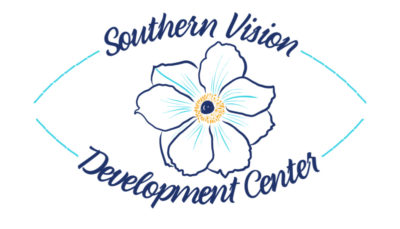What Do We Do
Our office specializes in the diagnosis and treatment of vision disorders that interfere with reading, learning and other activities of daily living. While we also work with adults, we mainly see children in our office.
Children love our staff. They create a very warm caring atmosphere during the testing.
To prepare your child for the evaluation, be sure to explain that there will be no shots and that there are no wrong answers. It is also helpful if you can make sure your child has a good night's sleep and eats a meal with protein and vegetables (if possible) prior to the appointment.
The evaluation takes about 2 hours and is very thorough. After the evaluation, a separate appointment is scheduled where Dr. Jones, the developmental optometrist, will speak with both parents/caregivers to get a better understanding of how the vision problem is impacting your child’s life. Dr. Jones then combines your information with the results of the testing to design a unique treatment plan to ensure your child’s success.
What type of treatment is typically recommended?
Depending on the type of problem found sometimes special glasses can help. If glasses won't solve the vision problem then an in-office program of vision therapy is often the only solution.
Vision therapy is much like “physical therapy”, but rather than treating the muscles of the body, it works on the eyes and visual system (which includes how the brain interprets what we see). It is an invaluable tool that has changed not only our patients’ vision, but has improved many related areas of their lives as well.
The first step of a vision therapy program is a thorough examination with Dr. Jones to determine if vision therapy is the best course of care. Having had extensive experience treating patients of all ages, she easily makes her younger patients comfortable during this exam.
Next, she'll prescribe an individualized program of vision therapy that train your eyes to work together, track, perceive and focus properly. Strengthening these basic visual skills can really change the way you see, allowing you to enjoy activities, such as reading, that may have been difficult before.
Research has shown that vision therapy can be instrumental in helping increase visual attention spans for children learning to read. Often, children who had been falling behind in reading are able to improve their performance greatly by reducing the effects of their vision problems. Vision therapy truly allows kids to enjoy learning and become more confident, happier people.
What Equipment Does a Vision Therapist Use?
Just as a physical therapist might use treadmills or weights, a vision therapist uses hi-tech equipment including prisms, eye patches, filtered lenses, computerized systems as well as a variety of other specialized equipment to conduct vision therapy sessions. In our office, we use many interactive computer programs that our younger patients enjoy and that result in long-lasting success.
Not only do the programs offer a proven, more effective method of delivering therapy, but the "fun" nature of the programs keeps children motivated to work, and thus, we find that results come quicker and stronger for our patients.
How Long is a Vision Therapy Program?
The number of office visits required depends on the diagnosis and the age of the patient. Vision therapy programs typically involve one to two in-office sessions throughout the week, for a varying number of months depending on need. We usually prescribe home exercises to reinforce office therapy.
Is Vision Therapy the same as “eye exercises”, “Colored Lenses”, “pinhole glasses” or “orthoptics”?
There are a number of programs of "eye exercises" and techniques for improving vision that are not associated with Vision Therapy, such as colored lenses or other programs advertised to quickly improve eyesight.
Likewise, education therapy and vision therapy are not to be confused. We do not treat learning problems directly. We treat them only to the extent that an underlying vision problem is the cause of the learning issue. Once this vision problem is treated, we may refer a patient to a tutor to help them get caught up to grade level.
Vision Therapy is carefully monitored by a licensed optometrist, and is supported by the American Optometric Association as a clinical treatment for certain visual deficits.


